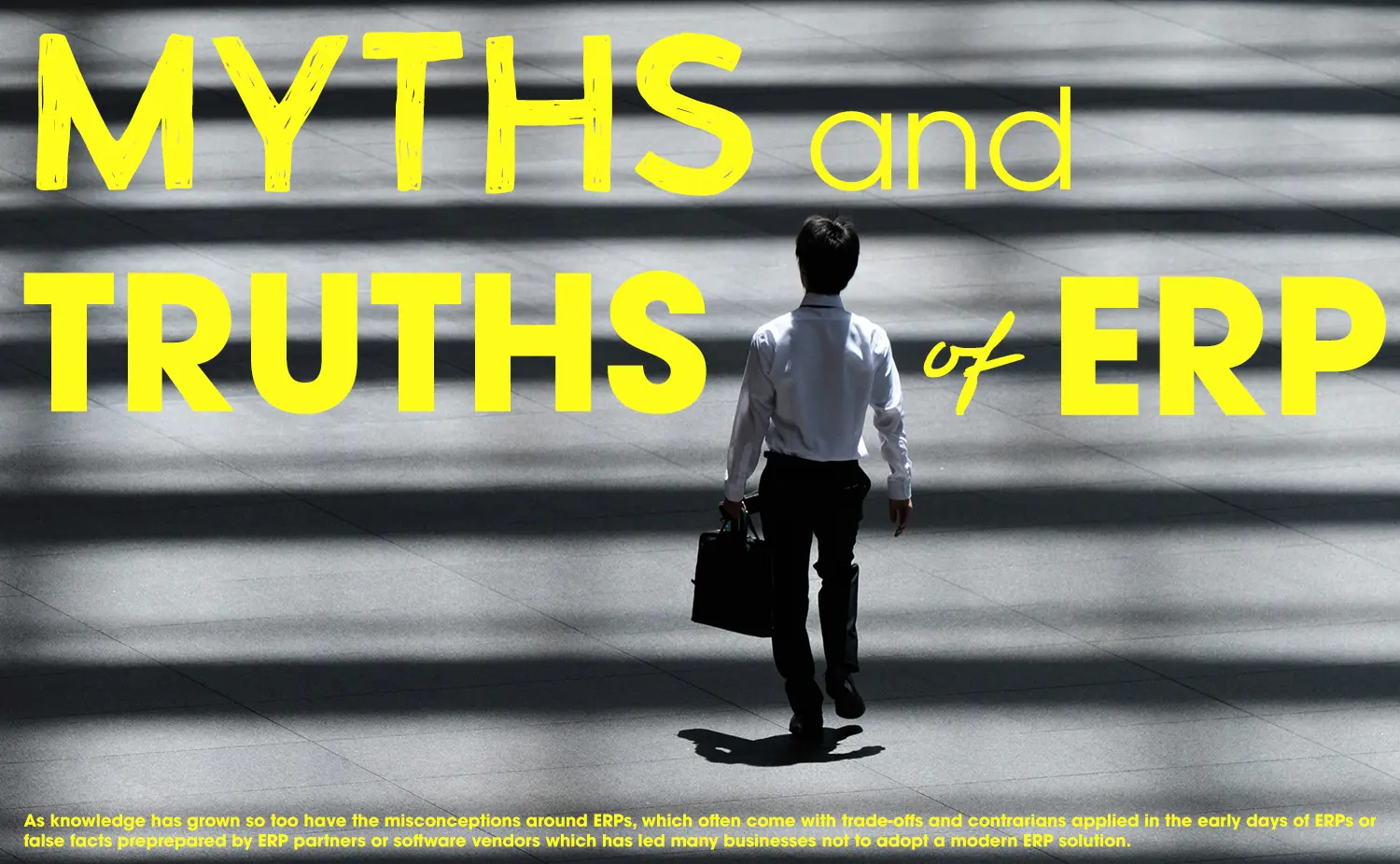As ERP systems have outgrown its earlier purpose and have become distributed mega software suites many myths have also emerged and not many have tried to decode this cloud of myths surrounding ERPs.
Some have lost careers and there are some organizations have hit the rock-bottom because of Enterprise Resource Planning (ERP) Systems, despite there are many who have made fortunes, and, in the process, some reliable advice has emerged on how best to address the challenges and maximize the benefits of a standard enterprise level system.
However, as knowledge has grown so too have the misconceptions around ERPs, which often come with trade-offs and contrarians applied in the early days of ERPs or false facts preprepared by ERP partners or software vendors which has led many businesses not to adopt a modern ERP solution.
Myth 01
ERP Systems are Too Expensive
ERP projects are notoriously popular for its long timelines and huge Capex requirements. Whenever the projects drag beyond the timeline it is expected to drive the ERP cost high. Mostly this happens because of overly ambitious scope, wrong product selection, over-customization of the base product, or simply selecting the wrong implementation partner. Such shortcomings are often linked with trying to make the business case more attractive to the stakeholders by promising additional functionality or rushing into the system integration without a proper plan in place. Thus, the investment of ERP deployment goes up, requires more resources, and takes longer to implement.
From planning to execution of the ERP project, it is vital to identify the key deliverables and the outcomes of the implementation. Once deliverables are identified break them into logical parts to identify what are key functions which are absolutely necessary to run the business.
Choosing a central ERP system that matches the core business requirements will always help to bring the cost down and often reduces the implementation effort.
While high-end, on-premises ERP solutions can still come with a substantial price tag, technical advancements such as cloud computing have made ERPs more affordable. Also, more importantly, most of the ERP vendors provide SAAS deployment offerings which will help organizations to shift ERP licensing expenditure from Capex to Opex which will reduce the burden of cash flow.
Myth 02
Poor Communication is the Reason for ERP Projects to Fail
Many believe that ERP projects fail because of communication gaps. If lack of communication is the problem, why would an integrator wait to fail the project rather than strengthen the communication and continue to implement it until the customer is happy.
- “ERP outputs wrong information”
- “The system is slow to respond”
- “ERP is too complicated to use, it has affected the efficiency”
Fellow system integrators, sounds familiar, isn’t it?
Most ERP system integrators will face similar types of situations on a daily basis. However, the above types of problems have led users to lose interest in endless meetings that waste time. Users will finally decide not to attend these meetings unless they are forced to do so.
On the contrary, ERP implementors believe that
- Users are not flexible enough.
- Difficult to communicate
- They don’t know as much as we do
In other words, the relationship between the integrator and the users will come to a point where both parties are not willing to corporate and communicate at all.
The solution for this is not that simple, but being ready to corporate and compromise when necessary will solve the problem at least up to a certain level.
Myth 03
ERP Projects Deliver Business Benefits
Deploying an ERP is not a one-off project. ERPs are supposed to grow with your organization with the incremental improvement that requires a sustainable change in mindset, behaviors, and ways of working.
During an ERP implementation cycle, teams from different business units work together to reduce the redundancy of the workload and information dependencies. It will lead an organization to work in a common language, disintegrate the organizational silos, and create a culture that embraces change.
Once the system is live it is expected to establish a simplified business process that connects different functional units when necessary. System users are a part of a common platform where information is available to support the intelligent decision-making process.
Regrettably, after a successful deployment, the management rushes to dissolve the project team and push them back to their day-to-day role. When the phase of engagement, collaboration, and transformation ends chances of leveraging the opportunities shrink. Eventually, the ERP system also become just one of the IT applications.
Usually, when a business considers an ERP deployment it expects to return of the ERP deployment to outweigh the cost of implementation.
In simple terms, an ERP is not a goose that lays golden eggs, but it will lead the business to find where they can save or where to increase their business efficiency.
Conclusion
ERP systems hold incredible potential to streamline operations, improve decision-making, and drive efficiency gains. However, realizing these benefits requires careful planning, strategic selection, and a commitment to ongoing optimization. Don’t let misconceptions or past challenges hold you back from unlocking the transformative power of ERP for your business.
Ready to explore the possibilities? Schedule a consultation with Meridian today. Our team of experts will help you debunk the myths, tailor a solution to your specific needs, and guide you towards a successful ERP implementation that delivers lasting value.



